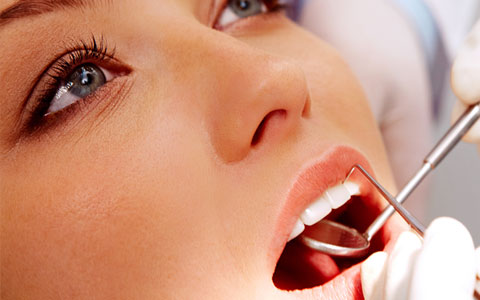Dental Terms
Periodontitis London
Periodontitis, a condition characterized by inflammation of the gums and supporting structures of the teeth, is one of the most common human diseases. It is primarily caused by specific bacteria, known as periodontal bacteria, and the local inflammation triggered by their presence. While these bacteria naturally inhabit the mouth, they become harmful when conditions allow them to multiply excessively. This happens when a layer of bacteria and food debris, known as plaque, accumulates on the teeth, especially in hard-to-reach areas such as the spaces between teeth.
The more harmful bacteria multiply, producing by-products that stimulate the body's inflammatory response in the gums. As the disease progresses, chronic inflammation leads to the destruction of the jawbone and, ultimately, tooth loss. In many cases, this progression is gradual, occurring over several years. However, early detection and treatment can halt this process. Some individuals, particularly young adults, may experience a more aggressive form of the disease, resulting in early tooth loosening and loss.
Periodontitis typically begins with inflammation of the gums, known as gingivitis. It may not always be immediately noticeable, but one of the first signs is often bleeding from the gums during tooth brushing. Other symptoms may include red and swollen gums and the presence of discolored bacterial plaque on the teeth.
Left untreated, gingivitis can progress to periodontitis, sometimes without obvious signs. However, over time, individuals may experience increased gum bleeding, bad breath, changes in tooth positioning, gum recession (lengthening of the teeth), and possibly pain. Smokers may have less noticeable gum bleeding due to the effects of nicotine on blood vessels, which can mask the disease process.
It's essential to recognize that the presence of periodontitis may not become evident until an individual reaches their 40s or 50s, by which time significant damage may have occurred. However, Dr. Jegatha Thirugnanavel can detect early signs of the disease during a routine examination, often using a specialized assessment called the Periodontal Screening Index.
A healthy mouth naturally contains over 700 different species of bacteria, most of which are harmless and coexist with their host. However, when tooth cleaning is inadequate, bacterial deposits accumulate near the gums, forming plaque. This provides an ideal environment for more harmful bacteria to flourish, compromising the body's natural defenses.
In all cases, periodontitis is caused by the buildup of bacteria in the form of dental plaque.
If bacterial plaque is not removed by regular brushing, minerals deposit within it over time, leading to the formation of hard deposits called tartar. Tartar encourages bacterial plaque to grow toward the tooth roots. As inflammation progresses deeper, it disrupts the attachment of the gum to the tooth root, forming a periodontal pocket. This pocket becomes an ideal place for harmful bacteria to colonize and multiply, releasing toxins that further trigger the body's defense mechanisms.
The severity and speed of periodontitis progression depend on various factors, including the type and quantity of bacteria present, the strength of the individual's immune response, and the presence or absence of specific risk factors. Factors like smoking or diabetes can weaken the body's defenses and accelerate the disease process. Certain drugs, such as antihypertensive medications and immunotherapy, can affect the inflammatory response to plaque, making patients more susceptible to gingivitis. However, it is crucial to understand that without the buildup of bacterial plaque, periodontitis would not develop.
Periodontal inflammation is not inevitable. It can be prevented through effective oral hygiene practices, regular professional examinations, and support. Dental floss is essential for cleaning tight spaces between teeth, while interdental brushes are suitable for larger gaps. Special attention should be given to cleaning around crooked or crowded teeth, fillings, crowns, and dentures, as these areas tend to accumulate plaque. Antibacterial mouthwashes can complement brushing by inhibiting bacterial growth and reducing inflammation.
If bacterial deposits are left on the teeth due to inadequate cleaning, they can mineralize and become hard, fixed deposits known as tartar. Dr. Jegatha Thirugnanavel or a periodontist will identify and remove these tartar deposits during a professional dental cleaning. Afterward, the teeth are polished to create a smooth surface less prone to plaque accumulation.
It's important to note that periodontitis is the leading cause of tooth loss. If left untreated, it can lead to the destruction of the supporting structures of the teeth, including the surrounding bone. Patients may experience complications such as painful abscesses, shifting of teeth affecting eating, and unsightly lengthening of teeth due to gum recession, exposing the roots.
Moreover, it's now understood that untreated periodontal disease can have broader effects on general health. It increases the risk of complications during pregnancy, including pre-eclampsia, premature birth, and low birth weight. Additionally, it's associated with an elevated risk of heart disease and diabetes.
At Victoria Dental Centre in London, we are dedicated to your oral health. If you suspect you have periodontitis or require periodontal care, don't hesitate to contact us at 519-432-0777 to schedule an appointment with Dr. Jegatha Thirugnanavel . Our practice is conveniently located at 339 Wellington Rd, Unit 105 Medcen, London, ON.
